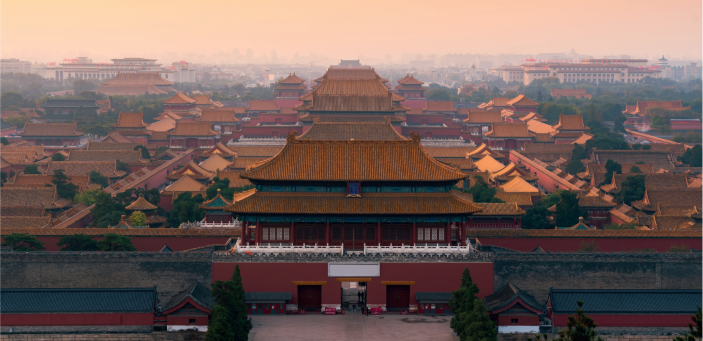The largest nanoscience and nanotechnology conference in the world took place again after a four-year hiatus.
China Nano was held in Beijing from 26–28 August this year. As the largest conference in the world specifically devoted to nanoscience and technology, it marks an important moment for nanoscience researchers worldwide. China Nano comprised 15 parallel sessions and several plenary talks. China Nano is held every two years, but it was cancelled two years ago due to the COVID-19 pandemic. And much has changed in the world of nanoscience since 2019.

Credit: Prasit Rodphan / Alamy Stock Photo
mRNA vaccines have been a huge success story since then. This has revamped funding for nanomedicine, especially when it comes to lipid nanoparticles as delivery vectors, exactly at the time when researchers were getting sceptical about whether nanomedicine would ever deliver in the clinic. Cascading it down, funding has also increased towards more fundamental aspects of nanobiotechnology. Unsurprisingly, the nanobiotechnology and nanomedicine sessions were the most attended ones at China Nano.
Various factors, such as the rise in airfare costs, lack of convenient direct flights and lengthier visa procedures also meant that the number of participants from the United States has unfortunately decreased since 2019. However, there was a large contingent of Chinese researchers, including high-calibre, established professors who, after being complicit with travel restrictions during the pandemic, have decided to move from North America back to their homeland. The science funding landscape in China offers attractive career opportunities and has been successful in bringing back talents educated abroad, including several ‘Highly Cited Researchers’ (the Clarivate metrics to measure excellence in research output).
It is especially pleasing to see that nanoscience and nanotechnology, rather than specific disciplines, continue to be designated as key research fields. More and more, interdisciplinarity is recognized as the unique, determining feature of a way of conducting scientific research that reverberates to larger scales, and, we would argue, is the only approach that is conducive to tackle grand societal challenges. China’s commitment to nanoscience is probably best exemplified by the success of the National Center for Nanoscience and Technology (NCNT). The Center was inaugurated already in 2003, also thanks to the charismatic figure of Chunli Bai, now Honorary President of the Academic Division of the Chinese Academy of Science. Bai pioneered the field of scanning tunnelling microscopy and single-molecule detection and has been behind many of the nanoscience initiatives launched by the Chinese Government since then. The current Director General of NCNT, Yuliang Zhao, co-chaired China Nano with Bai.
As nanoscience and nanotechnology is more and more pivoting towards applications globally, Zhao is also encouraging efforts in technological innovations. Despite the many applications of nanomaterials, the valley of death between academia and industry also remains a tough nut to crack for nanoscience in several sectors. Any commercial success story, though, is bound to drive top-down investments that will fuel the field, creating a virtuous loop. China will witness remarkable progress in this sense.
The nanoscience and nanotechnology landscape, both fundamental and applied, in China is certainly exciting. An upshot of this strong commitment is the fact that also neighbouring countries, namely South Korea and Japan, are also investing quite effectively in nanoscience and nanotechnology. It has been said before, but societal grand challenges can only be solved by fostering and supporting global co-operation. A race at the top among countries to invest money in research and bring investment to fruition for society is welcome, but equally important is to recognize that scientists need to exchange ideas globally to flourish. China Nano is the largest nanoscience and nanotechnology conference in the world, but it can probably be made more international.
- SEO Powered Content & PR Distribution. Get Amplified Today.
- PlatoData.Network Vertical Generative Ai. Empower Yourself. Access Here.
- PlatoAiStream. Web3 Intelligence. Knowledge Amplified. Access Here.
- PlatoESG. Automotive / EVs, Carbon, CleanTech, Energy, Environment, Solar, Waste Management. Access Here.
- PlatoHealth. Biotech and Clinical Trials Intelligence. Access Here.
- ChartPrime. Elevate your Trading Game with ChartPrime. Access Here.
- BlockOffsets. Modernizing Environmental Offset Ownership. Access Here.
- Source: https://www.nature.com/articles/s41565-023-01512-1



